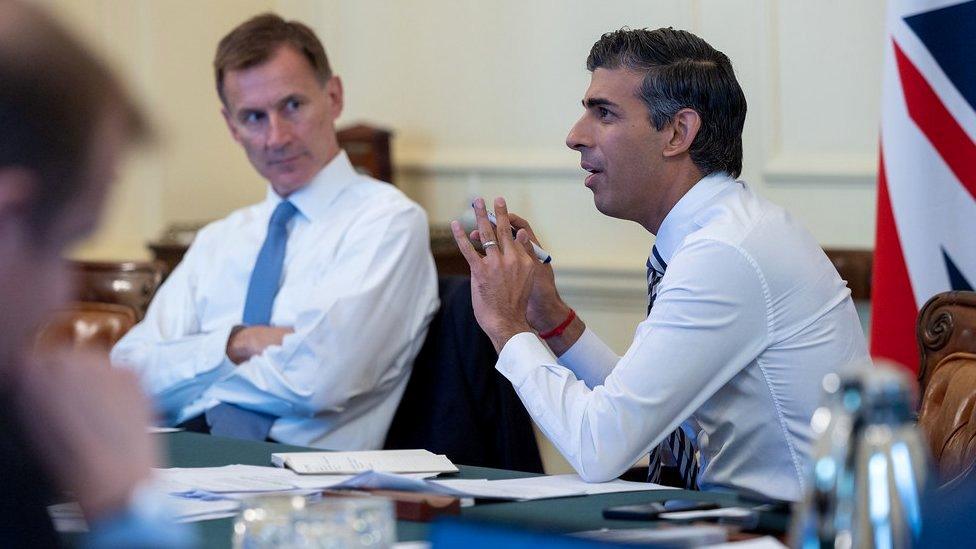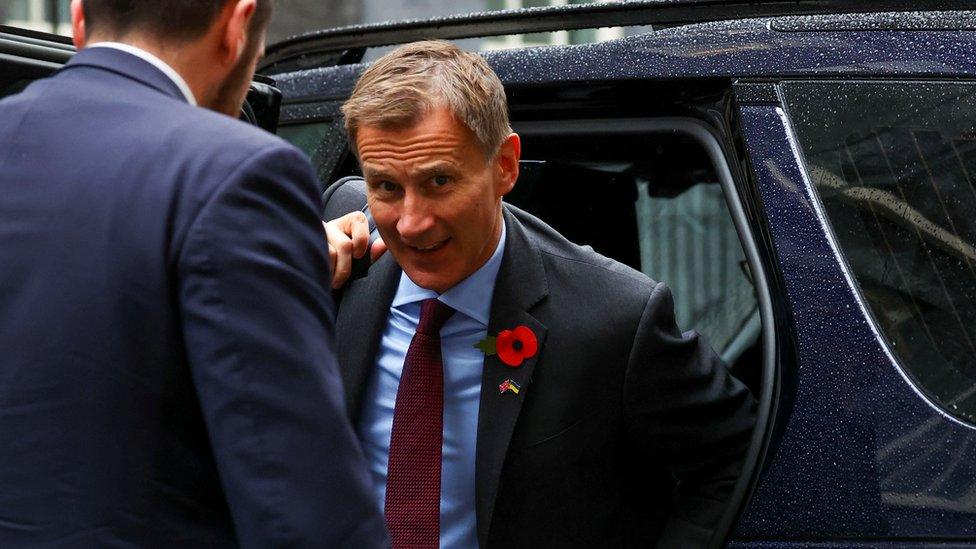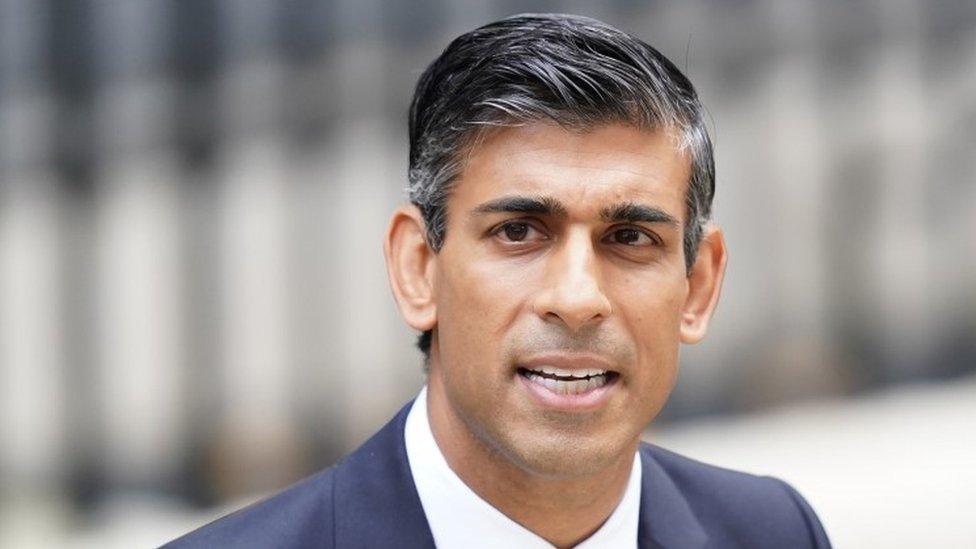Treasury warns of tax rises to fill financial hole
- Published
- comments

Everyone will have to pay more tax to put the UK's public finances on a sustainable footing, the Treasury is warning.
A source said spending cuts alone would not be enough to ensure the government meets its targets on spending and debt.
Chancellor Jeremy Hunt held talks with Prime Minister Rishi Sunak on Monday, ahead of a budget on 17 November.
A Treasury source said across-the-board tax hikes were "inevitable," adding: "It is going to be rough".
The department has not put a figure on what it calls the "fiscal black hole" facing the UK, the BBC has previously been told it may be at least £50bn.
Mr Hunt is now due to deliver a financial statement on 17 November, after the much-anticipated plan was pushed back by two weeks after Mr Sunak replaced Liz Truss in Downing Street.
Few concrete details of the government's plans have emerged, but reports have suggested ministers could extend a freeze on income tax thresholds, dragging more people into the higher rate.
The Daily Telegraph has reported that Mr Hunt is planning to fill the budgetary shortfall through a combination of 50% tax rises and 50% cuts to public spending.
His predecessor George Osborne, who oversaw a period of austerity after 2010, worked to a broad formula of 80% cuts and 20% tax rises.

Jeremy Hunt said last month he was facing decisions of "eye-watering" difficulty on the public finances
While the Treasury said Mr Hunt and Mr Sunak "agreed on the principle that those with the broadest shoulders should be asked to bear the greatest burden," it warned that "given the enormity of the challenge, it is inevitable that everybody would need to contribute more in tax in the years ahead".
The government has sought to brace the public for the impending change of direction, after Ms Truss's mini-budget last month pushed up the cost of UK government borrowing.
The Treasury source said increased public debt to pay for Covid-19 support and help with energy costs meant "we won't be able to fill the fiscal black hole through spending cuts alone".
Ministers have not ruled out real-terms cuts to pensions and benefits by raising them below the rate of inflation, a move that could save billions.
Opposition parties have resisted such a move, and are calling on the government to increase windfall taxes on oil and gas companies.
Ms Truss had ruled out additional windfall taxes, saying they would send the "wrong message" to international investors.
But the Times has reported Mr Hunt is considering increasing the current windfall tax, and extending the end-date from 2025 to 2028.
The newspaper said officials had also been working on plans for a windfall tax on electricity generating companies - a move also demanded by opposition parties.
'Fiscal black hole'
What is commonly called a "black hole" in the public finances refers to the amount the government would have to raise taxes by, or cut spending, to meet its medium-term financial targets.
These say that, in the third year of official economic forecasts, government debt should be falling as a share of national income, and day-to-day government spending should be met by tax revenue.
The projections are dependent on estimates about how much the economy will grow.
The size of the shortfall has shrunk slightly since Mr Hunt reversed most of the measures introduced at last month's mini-budget. At the time, the Institute for Fiscal Studies estimated it could be as much as £62bn.
In a new report, the Resolution Foundation think tank predicted that many of the options facing the government would be "unpalatable", as more people could be pushed into the higher 40% rate of tax in a bid to make up the shortfall.
Mr Sunak is also said to be considering freezing international aid for two years, and cutting investment spending.
But analysts have already warned that there remains little scope for further cuts to public spending after years of austerity under Conservative governments.
Watch: Faisal Islam says the chancellor's statement is the "biggest U-turn in British economic history".
Related topics
- Published25 October 2022
- Published25 October 2022

- Published24 October 2022
